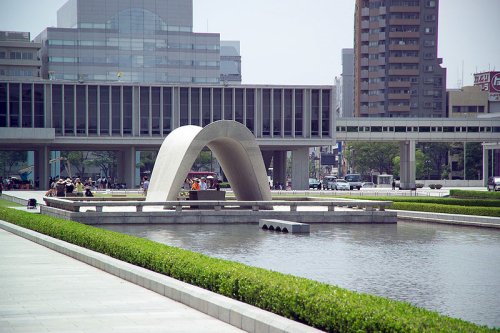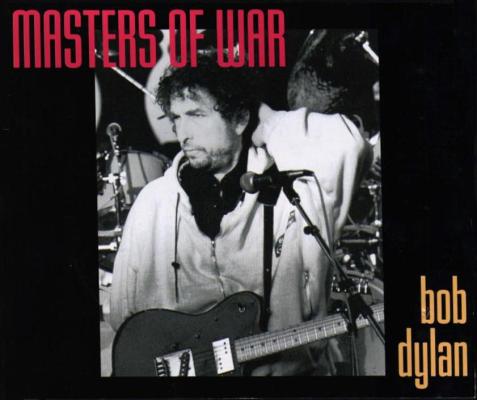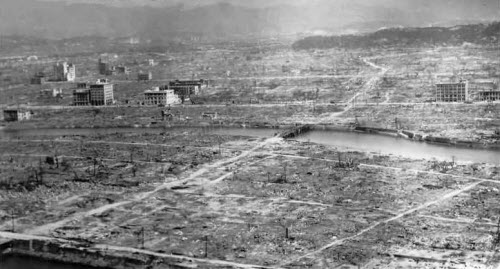This was his 9th concert on the “1994 FAR EAST TOUR“. The concert is special because of the location and a blistering acoustic version of “Masters of War“.
The first live acoustic “Masters Of War” since the concert in Town Hall in New York City, 12 April 1963… over 30 years earlier…
[vc_row][vc_column][vc_message message_box_color=”mulled_wine” icon_fontawesome=”fa fa-quote-left”]Come you masters of war
You that build all the guns
You that build the death planes
You that build the big bombs
You that hide behind walls
You that hide behind desks
I just want you to know
I can see through your masks[/vc_message][/vc_column][/vc_row]
Hiroshima Koseinenkin Kaikan
Hiroshima, Japan
16 February 1994
Musicians:
- Bob Dylan (vocal & guitar)
- Bucky Baxter (pedal steel guitar & electric slide guitar)
- John Jackson (guitar)
- Tony Garnier (bass)
- Winston Watson (drums & percussion)
Setlist:
- Jokerman
- Shelter From The Storm
- All Along The Watchtower
- She Belongs To Me
- Tangled Up In Blue
- Watching The River Flow
- Tomorrow Night (Sam Coslow/Will Grosz)
- Masters Of War
- Don’t Think Twice, It’s All Right
- Series Of Dreams
- I And I
- Maggie’s Farm
— - Man In The Long Black Coat
- It Ain’t Me, Babe
Hiroshima
 The Memorial Cenotaph in Hiroshima Peace Memorial Park
The Memorial Cenotaph in Hiroshima Peace Memorial Park
Hiroshima is the capital of Hiroshima Prefecture, and the largest city in the Chūgoku region of western Honshu, the largest island of Japan. It is best known as the first city in history to be targeted by a nuclear weapon when the United States Army Air Forces (USAAF) dropped an atomic bomb on it at 8:15 a.m. on August 6, 1945, near the end of World War II. Its name means “Wide Island”.
Hiroshima gained city status on April 1, 1889. On April 1, 1980, Hiroshima became a designated city. Kazumi Matsui has been the city’s mayor since April 2011.
On Monday, August 6, 1945, at 8:15 a.m., the Atomic Bomb “Little Boy” was dropped on Hiroshima by an American B-29 bomber, the Enola Gay, flown by Paul Tibbets, directly killing an estimated 80,000 people. By the end of the year, injury and radiation brought total casualties to 90,000–140,000. Approximately 69% of the city’s buildings were completely destroyed, and another 7% severely damaged.
Research about the effects of the attack was restricted during the occupation of Japan, and information censored until the signing of the San Francisco Peace Treaty in 1951, restoring control to the Japanese.
The oleander is the official flower of the city of Hiroshima because it was the first to bloom again after the explosion of the atomic bomb in 1945.
—–
Check out:
- Alldylan @ Facebook
- –
- Bob Dylan: Live 1980 – 1989 (Video & audio)
- Bob Dylan: 8 essential videos from the 80’s
- Bob Dylan concert videos/audios from 1990 – 1995 @ alldylan.com
- Bob Dylan: Concerts & Videos from 1996 – 1999 @ Alldylan.com
- Bob Dylan: 10 concert videos you MUST see from the 90’s
- –
- Karl Erik’s expectingrain.com
- Olof’s “Still On The Road“
-Egil


